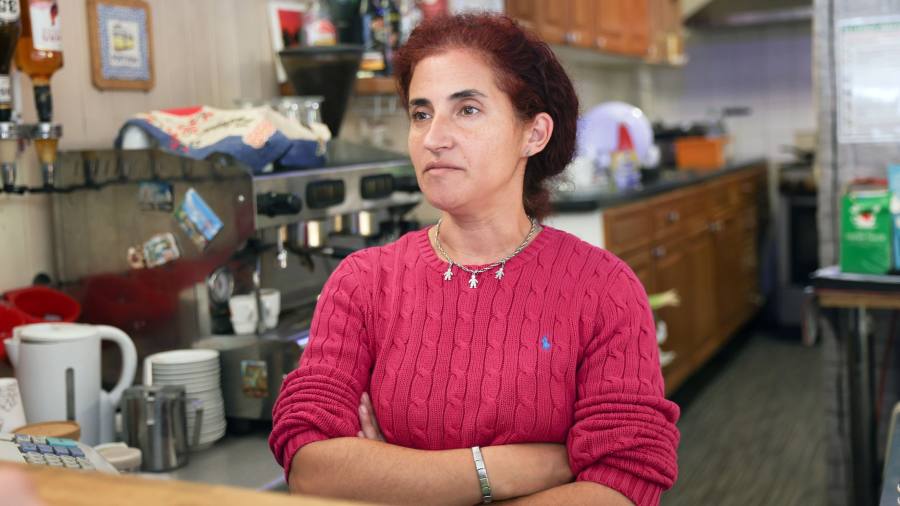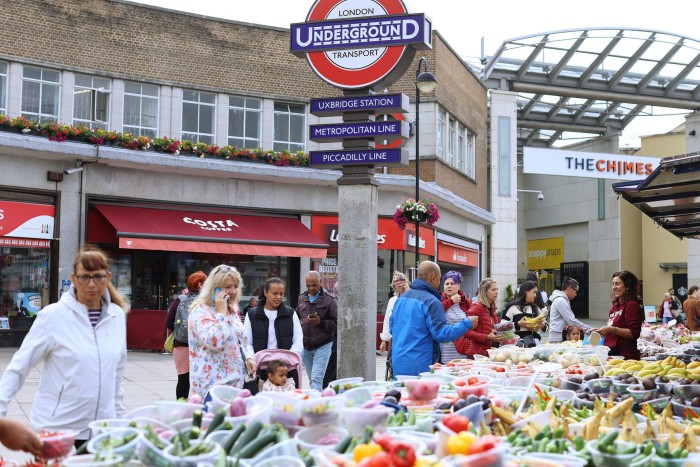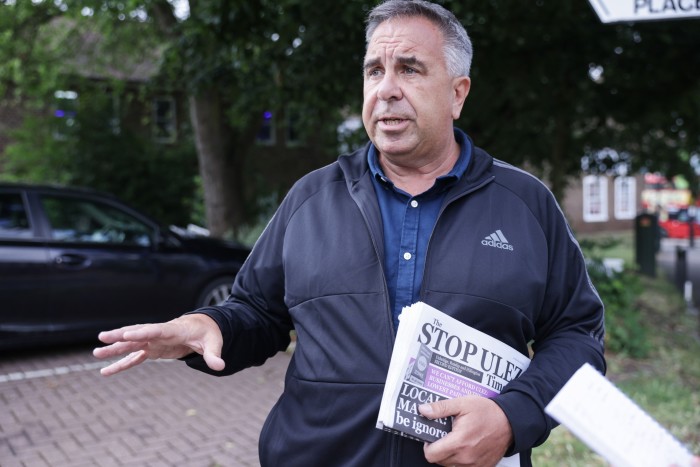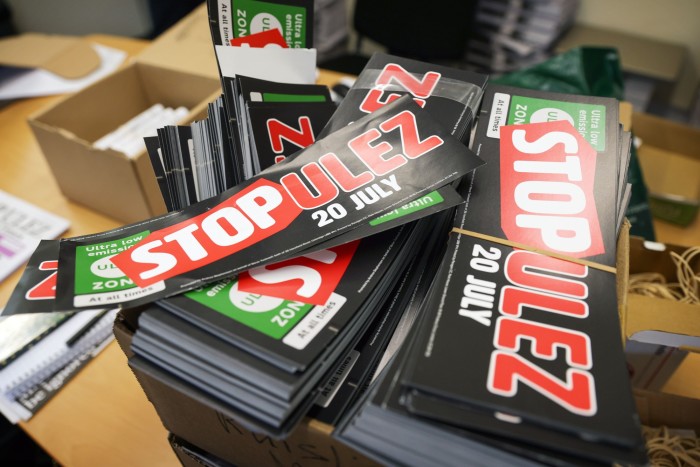
“We do need a change,” declared Sonia Caetano, explaining why she will be voting Labour in the by-election in Uxbridge and South Ruislip on July 20.
This constituency on the western fringes of Greater London has voted Conservative for more than half a century, but the dramatic resignation of former prime minister and incumbent Tory MP Boris Johnson last month may have finally put victory within Labour’s grasp.
Speaking behind the counter of Alma Lusa, the Portuguese café she owns in Yiewsley, one of several large villages in the constituency, 42-year-old Caetano said the Conservative government had damaged Britain’s high streets.
Soaring electricity bills are forcing her to weigh up whether to close her café. “I’m struggling,” she said, adding that several nearby shops had already stopped trading.
Her appetite for a new political direction — both in the seat and nationally — is a sentiment echoed by a string of other voters. “I think maybe it’s just time to change,” said 35-year-old Asya, who plans to back Labour.
She added: “The Conservatives have made a mess . . . I feel the Conservatives are a bit more with the rich and stay-rch. Labour is more with the working people.”
The mother-of-one also believes Labour will better support the main hospital in Hillingdon, which she derided as “an utter shambles”.
Labour is the favourite to beat the Conservatives, according to the bookmakers and insiders in both parties, in what is widely seen as a two-horse race. The race in Uxbridge and South Ruislip is one of three by-elections taking place on July 20.
However, the plans of London’s Labour mayor to extend the ultra-low emission zone to include suburban areas such as Uxbridge and charge heavy polluting vehicles threatens to dent the party’s popularity.

Nonetheless, former charity worker Danny Beales, 34, the Labour candidate, said he was getting a “really warm” reception on the doorstep from voters, whose “number one issue . . . is the cost of living”.
“People are really being squeezed, people are poorer because of this government after 13 years [in power],” he said, citing rising taxes and persistently high inflation.
Local families are particularly concerned about rocketing mortgage rates, which are increasing after the Bank of England raised interest rates to a 15-year high. Beales warned that 10,000 local people are set to come off fixed-rate deals and face precipitous rises in their monthly costs.
The rate of home ownership is high in the constituency, which is the epitome of “Metroland”, the sprawling suburbs in the north-west of London served by the Metropolitan underground line.
The seat is dominated by the town at the last stop on the line: Uxbridge. It boasts cobbled streets, an art deco tube station and the Three Tuns pub that locals said dates back to the 16th century.

A handful of scruffier urbanised villages, Brunel University and RAF Northolt, the only active military air base in London, make up the rest of the constituency.
Little has been seen of Johnson in the seat since he quit as MP last month, but his presence looms large over the contest to replace his successor.
On Uxbridge High Street, Garry Grainger, 62, said he had voted Conservative “all my life”, but will break that habit out of anger at the former prime minister’s conduct.
“He lied. He continually lied,” concluded Grainger, a private hire driver, echoing the verdict of the House of Commons privileges committee that found Johnson deliberately misled MPs over lockdown parties in Downing Street during the Covid pandemic.
The former MP still commands fierce loyalty from some of his former constituents, however. At the Pavilion shopping centre, Sharon insists Johnson “did a good job”. The 54-year-old, on duty at the flower stall, argued that his critics were “blowing [the partygate scandal] out of all proportion”.
Tory candidate Steve Tuckwell, 54, admits “many people” have raised the former prime minister on the campaign trail.

A local councillor, who works for a vehicle contract leasing company, Tuckwell admitted he was the “underdog”, citing recent odds putting him at 16/1 to win.
However, he is betting on the wild card factor that could see the Conservatives, who are defending a majority of 7,210 votes, maintain their winning streak in Uxbridge: local fury about the mayor’s plan to expand the ultra-low emission zone from inner London to the capital’s fringes.
The move, which the Tory-led council of Hillingdon is battling in the courts, will come into force in the area next month and will levy a £12.50 daily charge on high-polluting, older vehicles that do not meet emissions standards.

Tuckwell called the move “highway robbery”, noting it was not the first time residents had been extorted; Uxbridge was home to notorious 18th-century highwayman Dick Turpin.
However, the Ulez backlash is not all to the Conservatives’ advantage.
Retiree Lyn Rowe, 65, said she was “definitely not” voting Labour “because of the Ulez”. Her husband drives a non-compliant van for work and faces additional costs of almost £400 a month. Despite her anger, and voting Conservative previously, she is still unsure who she will back.
The criticism appears to have spooked Labour candidate Beales, who has broken from his party’s line and declared he does not support the zone’s expansion. Tuckwell insisted the by-election will be a single-issue “referendum” on the matter.
Professor Tim Bale, of Queen Mary, University of London, is sceptical, however. By-elections are “often pitched in terms of a local issue being dominant”, he said, “but when it comes down to it, it tends to be national issues that are prevalent”.